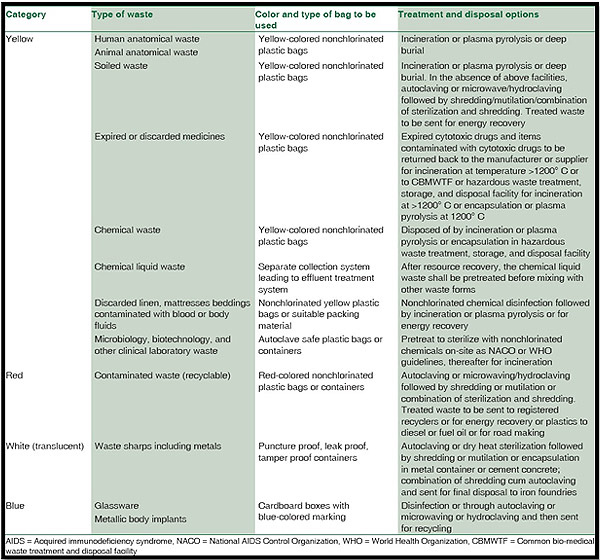What Does Reclaim Waste Do?
Table of ContentsThe Best Guide To Reclaim WasteReclaim Waste Can Be Fun For EveryoneNot known Facts About Reclaim WasteSee This Report on Reclaim Waste5 Easy Facts About Reclaim Waste Described
Through appropriate fluid waste monitoring, companies can decrease energy-intensive treatment procedures and disposal expenses. By complying with a system for handling liquid waste, business can stay clear of pricey penalties and charges and prevent adverse attention.(https://slides.com/reclaimwaste1)Accumulate representative samples from different factors within the waste stream to make sure precision. Conduct periodic screening to track any type of changes in the composition. Keep in-depth documents of characterization for future recommendation and compliance objectives. Fluid waste, especially unsafe ones, poses considerable risks during this action. Appropriate treatments decrease spills, leaks, and other accidents that might damage the employees and the public.

is needed when the effluent will be recycled or released into local pools. Disinfection (e.g., chlorination, ultraviolet light, ozonation) and nutrient elimination (e.g., denitrification and phosphorus obliteration) are advised under rigorous laws. This stage in the process is purely controlled due to the fact that it is when most threats happen. Countless companies violated several fluid waste disposal laws recently.
Everything about Reclaim Waste

Shallow containers contain fluid waste that is permitted to evaporate through all-natural processes. This type of disposal is subject to rigorous environmental regulations due to potentially harmful discharges.
The findings should be documented, evaluated, and stored not simply for submission to regulatory authorities however additionally for making improvements in the future. Share information with relevant stakeholders (e.g., staff members, governing federal government firms, and nearby areas) to maintain openness and accountability.
Comprehending these can help them properly manage their operations and reduce their environmental impact. Companies that can't invest in centers need to take into consideration collaborating with the public market for far better services.
Indicators on Reclaim Waste You Need To Know
By applying detailed administration systems that include therapy and recycling techniques, normal tracking, danger evaluations, and adherence to neighborhood and government laws, industrial facilities can contribute to the defense of groundwater supplies, ensuring their schedule for future generations (industrial wastewater treatment). Let's dive into the relevance of efficient liquid waste administration in the industrial my site industry, focusing on its effects for securing groundwater sources
The contamination of groundwater sources as a result of incorrect fluid waste management in the commercial field has far-reaching consequences for human wellness, agriculture, and the setting overall. A few of the potential effects created by such pollution consist of: Contaminated Alcohol consumption Water Supplies: As groundwater supplies a significant part of our drinking water, air pollution from commercial activities can cause damaging chemicals and bacteria entering our water supply, presenting wellness threats for human beings.
Reduced Agricultural Performance: Agriculture relies heavily on groundwater for irrigation; as a result, contaminated water can impede plant returns, pollute agricultural items, and impact food safety and security. Given the relevance of maintaining groundwater sources, it is important for services to take a positive position in handling their fluid waste responsibly and stopping contamination.
The Only Guide for Reclaim Waste
Liquid waste can infect land and contaminate waters. Details regarding dealing with and saving liquid waste, reacting to spills and reducing fluid waste is available in the adhering to reality sheets and support:.
Water, the essence of life, is under consistent hazard from contamination. The function of waste management experts in protecting this priceless resource can not be overstated. Their solutions consist of: Sewage-disposal tank and grease catch cleansing: Essential for preventing damaging contaminants from entering our water systems. Contaminated water and contaminated effluent monitoring: Making sure that hazardous liquids are securely eliminated and treated before they can damage our water sources.
Thus, integrating lasting liquid waste administration right into economic preparation boosts financial stability and safeguards the setting, showing the worth of this approach. In verdict, taking on expert fluid waste administration techniques is crucial for making certain a lasting future, securing our setting and safeguarding the wellness of future generations.
When it concerns getting rid of waste, sticking to proper procedures is important for a wide range of reasons. Appropriate garbage disposal is not practically sanitation; it has to do with guaranteeing the health of our environment, health and wellness, and the reliable usage of sources. Comprehending the value of reliable waste administration can help us all add to a healthier, cleaner earth.
Reclaim Waste Things To Know Before You Get This
Efficient waste administration helps keep clean roads and public rooms, reducing the visual effect of litter and making sure that waste does not harm wild animals. When waste is not thrown away properly, it can result in contamination, where unsafe compounds can seep right into the soil, water supply, and the air, producing lasting ecological problems.